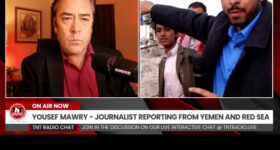Joel Greenberg and Babak Dehghanpisheh
Washington Post
JERUSALEM — Israeli aircraft struck inside Syria on Wednesday for the first time since 2007, according to Western and Syrian officials, in a development that underlined the risk that the civil war in Syria could spill over into a wider conflict.
There were conflicting reports about the target and its location. A Western official and a former Lebanese security official said earlier Wednesday that Israel had attacked inside Syria along the border with Lebanon, and the former Lebanese official said an unmanned aircraft had hit a truck carrying weapons. But in a later statement, the Syrian army denied a strike along the border and said instead that Israeli jets had bombed a defense research center near Damascus.
Israel declined to comment, as did U.S. officials, who deferred to Israel, a key security partner. The response was similar to the silence that followed Israel’s bombing five years ago of a suspected Syrian nuclear reactor, an attack that U.S. officials later confirmed but that the Israelis have not acknowledged to date.
The attack Wednesday highlighted deepening Israeli concerns that the disintegration of Syria could lead to the transfer of advanced weapons to Islamist militants there or to the Iranian-backed Hezbollah militant group in neighboring Lebanon, posing new threats to Israel’s military reach across its borders.
Hezbollah, which is closely aligned with both Syria and Iran, condemned the airstrike as “barbaric aggression” and expressed “full solidarity with Syria’s command, army and people,” the Associated Press reported. Russia, Syria’s chief patron, said the strike would constitute “unprovoked attacks on targets on the territory of a sovereign country, which blatantly violates the U.N. Charter and is unacceptable, no matter the motives to justify it.”
The Syrian government said in a statement that Israeli aircraft had bombed “a scientific research center responsible for raising the levels of resistance and self-
defense” in Jamraya, northwest of Damascus, the capital.
The statement said the Israeli planes had flown below radar range and destroyed the building, killing two employees and wounding five. The statement denied that a convoy had been hit near the border with Lebanon, calling the reports “baseless.”
But according to earlier accounts by the Western official and a U.S. official, Israeli aircraft struck near the Syria-Lebanon border. The officials said there were no indications that chemical weapons were targeted.
Concerns about Hezbollah
The Associated Press, citing unnamed regional security officials, said that Israel had been planning to target a Syrian shipment of antiaircraft missiles bound for Hezbollah and that the shipment included sophisticated Russian-made SA-17 missiles.
Although Israeli and U.S. security officials have said that Syria’s chemical weapons stockpiles were secure for now, there is profound concern in Israel about a parallel transfer of advanced conventional weapons to Hezbollah.
Giora Eiland, a former head of Israel’s national security council, said in an interview that any transfer to Hezbollah of weapons considered to be game-changers, such as the Russian antiaircraft missiles or long-range Scud missiles, is viewed as gravely as the chemical threat.














